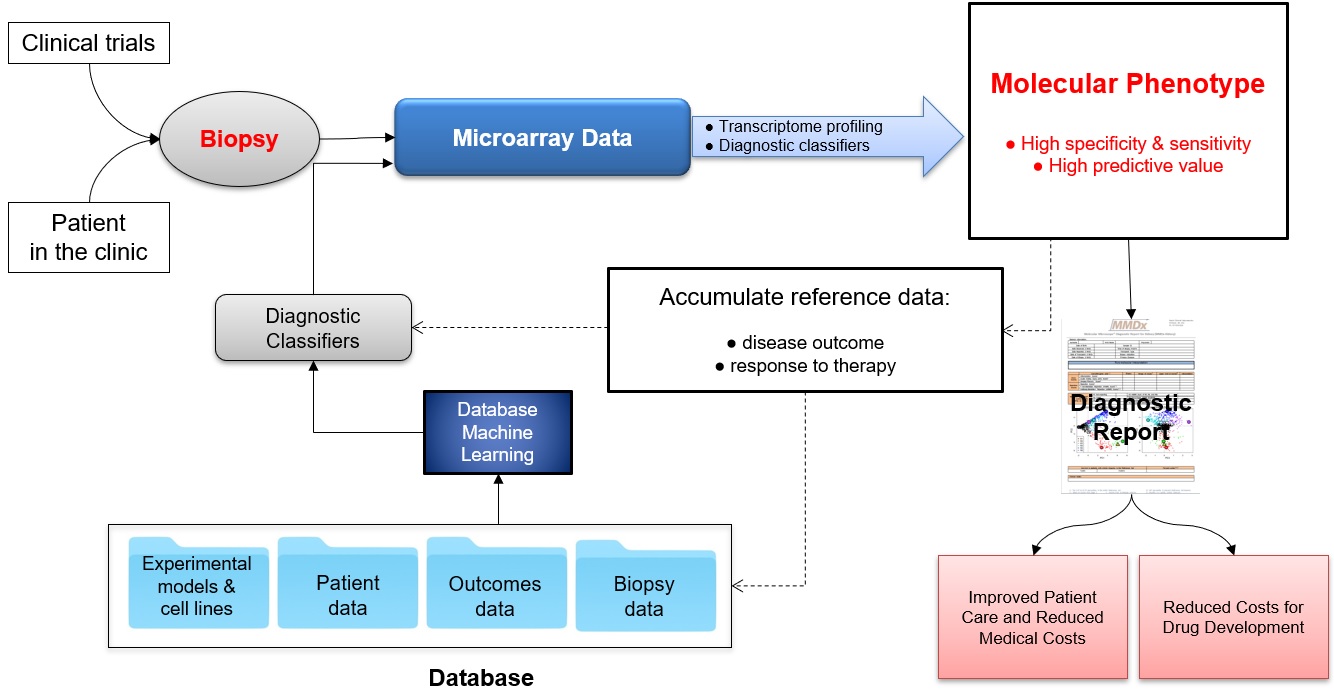Molecular Microscope® Diagnostic System
"...variation in histologic grading is large, under-recognized, difficult to improve, and almost certainly of major clinical relevance..."
-Furness, 2003, on the classification of kidney transplant biopsies
Background: Quantitative molecular diagnostic systems for biopsies are essential to the development of personalized medicine. Such systems will not only assess diagnosis, activity, stage, and prognosis, but also offer mechanistic understanding, improved disease classification, clinical trials, and guidance for therapy (theranostics).
The unmet need: Current histology systems for assessing biopsies are empirically derived, subjective, and a major source of error. This adversely affects patients, wastes resources, and impedes the development of new drugs.
The Molecular Microscope® (MMDx) addresses the unmet need: We developed a generally applicable system for assessing biopsies using microarray-based mRNA assessment. The system was developed in kidney transplant biopsies but revealed widely shared biologic elements that facilitate applications to many tissues and diseases. The MMDx offers mechanistic understanding, insights into similarities among diseases, disease reclassification, opportunities in clinical trials and drug development, and the potential to correct many current errors.
The MMDx is truly personalized medicine: The MMDx System measures the molecular features of a tissue to give an objective and quantitative estimate of disease-related changes:
- the probability of specific diseases: TCMR, ABMR, any rejection;
- the global disturbance: extent of deviation from the normal organization;
- recent parenchymal injury and atrophy-scarring;
- actual probability of progression to end-stage failure;
- the probability of response to therapy ("theranostics").
How it works:
The MMDx compares biopsy reads (routine lab, histology, and microarray analysis) in new patients to reference cases in our proprietary database:

The applications of MMDx:
- Support for clinical trials, leading to the application as a theranostic after the drug is released for use;
- Routine diagnostics for biopsies of GI tract, liver, kidney, lung, skin;
- Discovery of mechanisms and druggable targets
For more information on our core services please contact:
Phone: 780-492-1725
Email: konrad@ualberta.ca